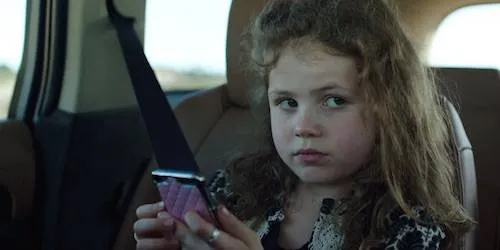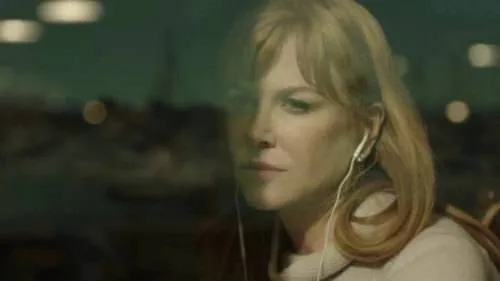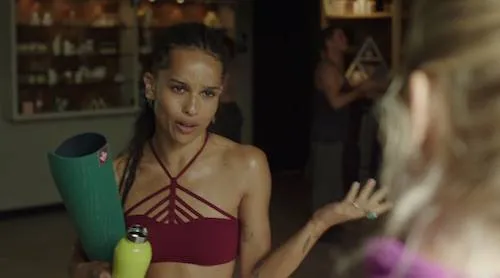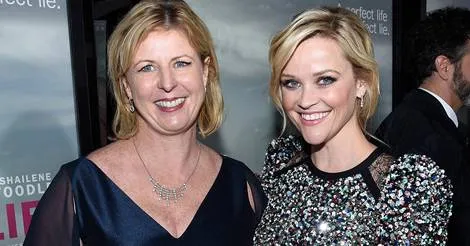
4 Things About HBO’s BIG LITTLE LIES That Need to Be Addressed
This content contains affiliate links. When you buy through these links, we may earn an affiliate commission.
HBO’s limited-series adaptation of Liane Moriarty’s Big Little Lies was a hit and many people are talking about, dissecting, and writing think pieces on it. While there are the conversations I agree with and have learned from, there are also a few things I keep hearing–and not hearing–being discussed that I feel need to be addressed.
“The series was better than the book because of the cast.”
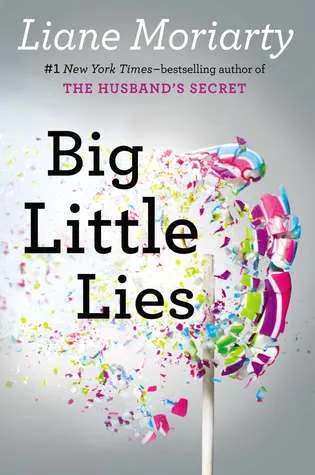 No. Nope. All the nopes. Was it a hell of a cast? Yes. Does Nicole Kidman deserve to be nominated? Absolutely. Does that make the show better than the book? And we’re back to “nope!” The only reason great acting would make an adaptation better than the novel would be if the characters weren’t alive on the page. That wasn’t the case with Moriarty’s novel. I knew all the women in the book: I saw them, could feel them, and could hear them. What the great acting in the show did was properly represent what was on every page of the novel: different types of white women and their lives. High-fives to the casting of the show and acting but double high-fives to Moriarty for creating and bringing to life Madeline, Celeste, Bonnie, Jane, Renata, and Abigail.
“I loved the Big Little Lies series but I don’t want to read the novel because I don’t like those types of books.”
Here’s the thing, what you saw on TV is what was in the book. There is no difference between them that would make the book a genre not to read but the show a genre to watch. And what I’m hearing when I keep coming across people saying this is that they don’t read books that are so much women. We are still raised to believe that men’s stories are for everyone but women’s stories are only for women. It’s a sexist, gross, and frustrating idea. It keeps women in a perpetual holding pattern of “not good enough.” If you read mystery/crime fiction but won’t read Big Little Lies because it isn’t your type of book than what you’re saying is that you don’t read women’s fiction which is literally FICTION that just gets labeled as women’s because sexism keeps things created by women separate so that it can be thought of as less than. It isn’t. It never was. It never will be.
No. Nope. All the nopes. Was it a hell of a cast? Yes. Does Nicole Kidman deserve to be nominated? Absolutely. Does that make the show better than the book? And we’re back to “nope!” The only reason great acting would make an adaptation better than the novel would be if the characters weren’t alive on the page. That wasn’t the case with Moriarty’s novel. I knew all the women in the book: I saw them, could feel them, and could hear them. What the great acting in the show did was properly represent what was on every page of the novel: different types of white women and their lives. High-fives to the casting of the show and acting but double high-fives to Moriarty for creating and bringing to life Madeline, Celeste, Bonnie, Jane, Renata, and Abigail.
“I loved the Big Little Lies series but I don’t want to read the novel because I don’t like those types of books.”
Here’s the thing, what you saw on TV is what was in the book. There is no difference between them that would make the book a genre not to read but the show a genre to watch. And what I’m hearing when I keep coming across people saying this is that they don’t read books that are so much women. We are still raised to believe that men’s stories are for everyone but women’s stories are only for women. It’s a sexist, gross, and frustrating idea. It keeps women in a perpetual holding pattern of “not good enough.” If you read mystery/crime fiction but won’t read Big Little Lies because it isn’t your type of book than what you’re saying is that you don’t read women’s fiction which is literally FICTION that just gets labeled as women’s because sexism keeps things created by women separate so that it can be thought of as less than. It isn’t. It never was. It never will be.
 No. Nope. All the nopes. Was it a hell of a cast? Yes. Does Nicole Kidman deserve to be nominated? Absolutely. Does that make the show better than the book? And we’re back to “nope!” The only reason great acting would make an adaptation better than the novel would be if the characters weren’t alive on the page. That wasn’t the case with Moriarty’s novel. I knew all the women in the book: I saw them, could feel them, and could hear them. What the great acting in the show did was properly represent what was on every page of the novel: different types of white women and their lives. High-fives to the casting of the show and acting but double high-fives to Moriarty for creating and bringing to life Madeline, Celeste, Bonnie, Jane, Renata, and Abigail.
“I loved the Big Little Lies series but I don’t want to read the novel because I don’t like those types of books.”
Here’s the thing, what you saw on TV is what was in the book. There is no difference between them that would make the book a genre not to read but the show a genre to watch. And what I’m hearing when I keep coming across people saying this is that they don’t read books that are so much women. We are still raised to believe that men’s stories are for everyone but women’s stories are only for women. It’s a sexist, gross, and frustrating idea. It keeps women in a perpetual holding pattern of “not good enough.” If you read mystery/crime fiction but won’t read Big Little Lies because it isn’t your type of book than what you’re saying is that you don’t read women’s fiction which is literally FICTION that just gets labeled as women’s because sexism keeps things created by women separate so that it can be thought of as less than. It isn’t. It never was. It never will be.
No. Nope. All the nopes. Was it a hell of a cast? Yes. Does Nicole Kidman deserve to be nominated? Absolutely. Does that make the show better than the book? And we’re back to “nope!” The only reason great acting would make an adaptation better than the novel would be if the characters weren’t alive on the page. That wasn’t the case with Moriarty’s novel. I knew all the women in the book: I saw them, could feel them, and could hear them. What the great acting in the show did was properly represent what was on every page of the novel: different types of white women and their lives. High-fives to the casting of the show and acting but double high-fives to Moriarty for creating and bringing to life Madeline, Celeste, Bonnie, Jane, Renata, and Abigail.
“I loved the Big Little Lies series but I don’t want to read the novel because I don’t like those types of books.”
Here’s the thing, what you saw on TV is what was in the book. There is no difference between them that would make the book a genre not to read but the show a genre to watch. And what I’m hearing when I keep coming across people saying this is that they don’t read books that are so much women. We are still raised to believe that men’s stories are for everyone but women’s stories are only for women. It’s a sexist, gross, and frustrating idea. It keeps women in a perpetual holding pattern of “not good enough.” If you read mystery/crime fiction but won’t read Big Little Lies because it isn’t your type of book than what you’re saying is that you don’t read women’s fiction which is literally FICTION that just gets labeled as women’s because sexism keeps things created by women separate so that it can be thought of as less than. It isn’t. It never was. It never will be.
